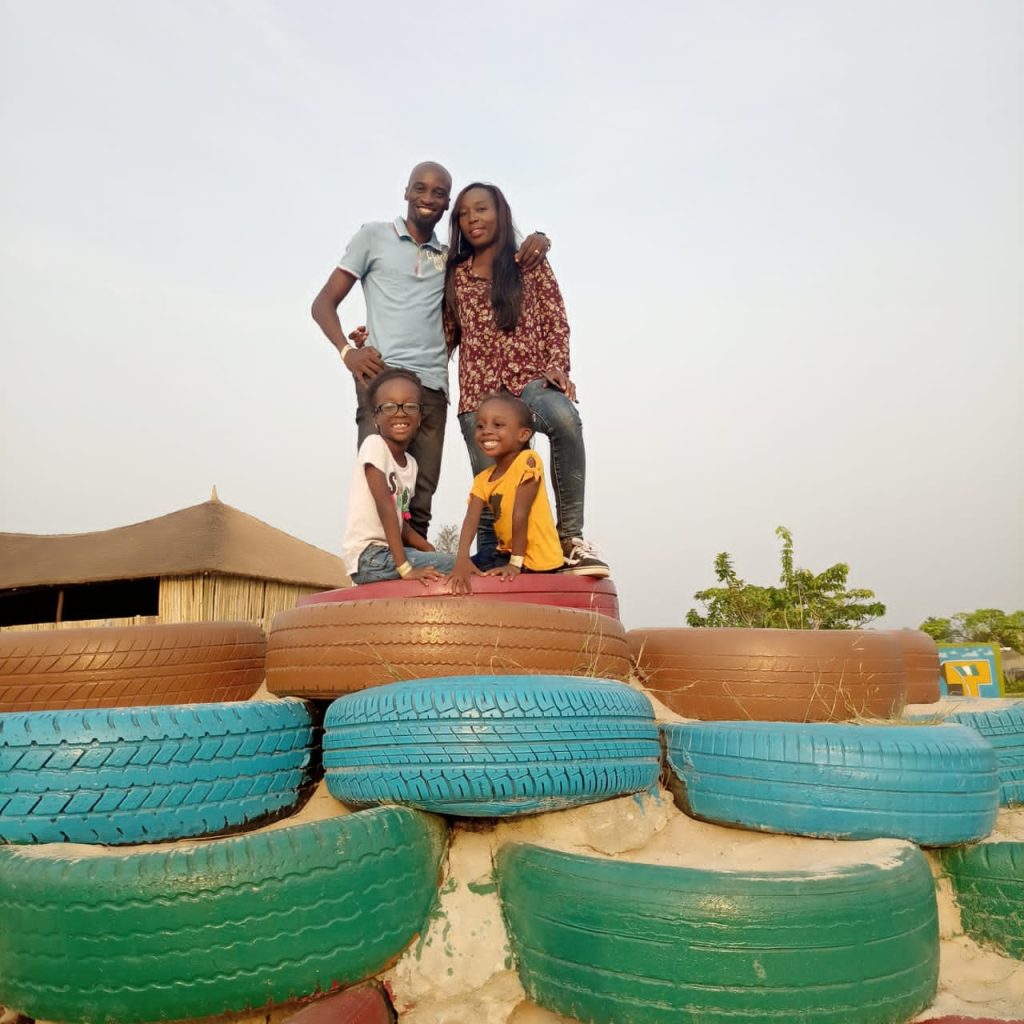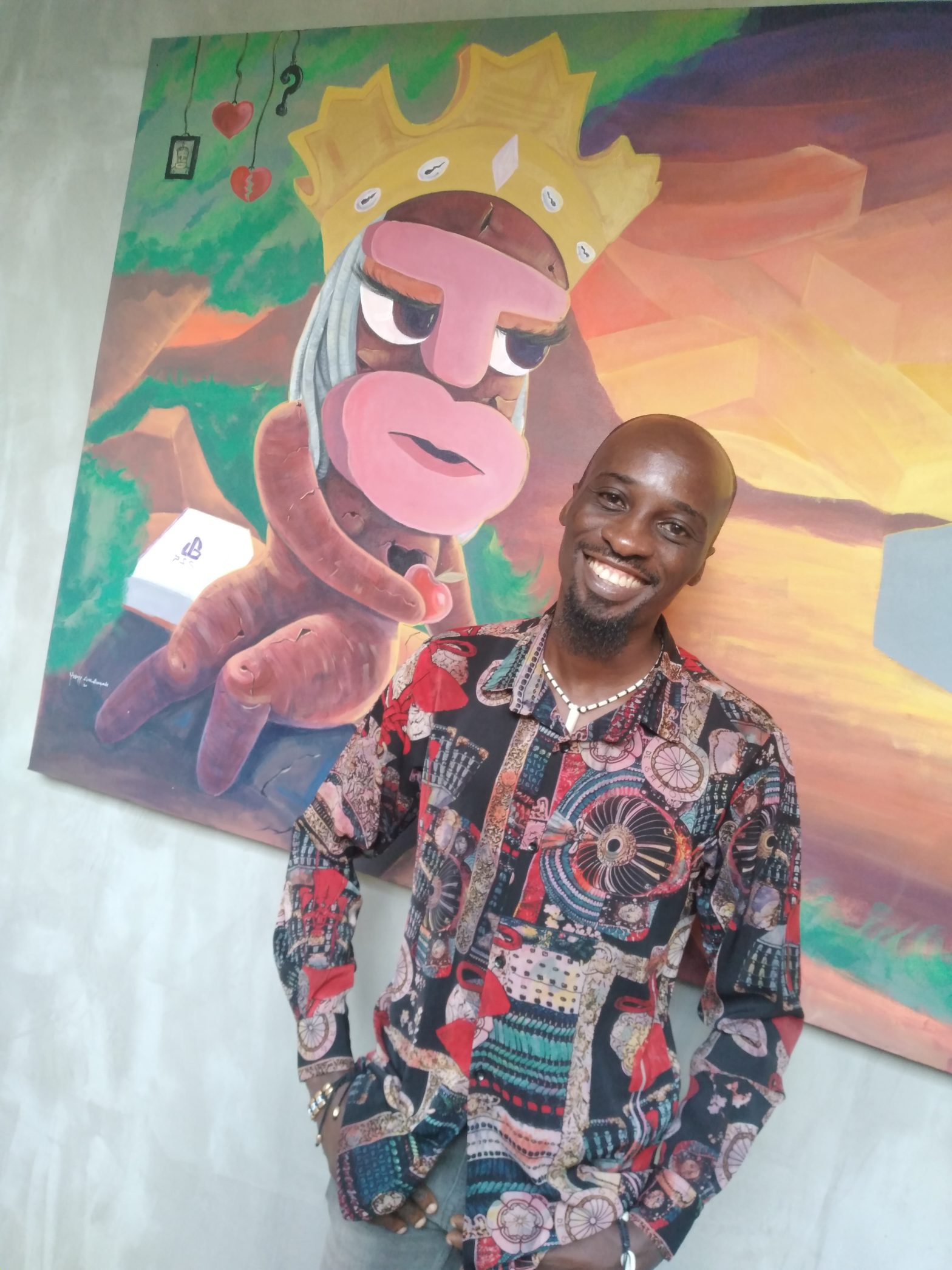TNR: What or who influenced your journey into writing?
Lanre Badmus, my younger brother, was the main reason I started writing poetry. He used to have his poems up on his faculty noticeboard at the University. I would go all the way from engineering to the Law Faculty to read.
My parents were avid readers, and we cultivated the habits of reading at quite an early age. It brought out the love for writing in me. I would write short stories in 2A exercise note books and give to my parents and siblings to read and guests that come visiting.
Mum co-authored a geography textbook. Dad had several papers on Urban and Regional planning published. Lanre has several poetry collections and a novel.

TNR: Which writers would you say have had the greatest impact on you as a poet?
I would say that I spent my earlier years reading fiction. It was first James Hadley Chase, then Robert Ludlum. But the biggest influences were Dean Koontz and Stephen King. These early deposits form the foundation of expressions for me.
As a poet, Niyi Osundare, Amu Nnadi, Uche Nduka, J. P. Clark, Michael Faudet, and Pablo Neruda.
TNR: Apart from poetry, what other genres do you write?
Short fiction, personal essays/creative nonfiction
TNR: Does your career as an engineer play any role in your poetry? How do you engineer your poems?
It does. As an engineer, I travel a lot. And my travels inspire my poetry. Journeys afford me musing space—I find myself writing a storm after each journey!
The way I approach engineering and poetry is the same. I cook up a concept, think of an image to wrap the concept around and start putting bricks and mortal together.
I get inspired by my environment—nature, conversions around me, beauty and destruction. Also, I believe poetry can be entertainment too; it doesn’t have to be boring. So, I approach writing that way. I employ duality and intertextuality. I’m a fan of simple language, gripping line breaks and sharp twists.
TNR: In your estimation, what makes a great poem?
Consistent diction, lucid and relatable imagery. Conciseness and precision of language. Fluidity. A great poem inspires and gives room for engagement and interrogation.
TNR: What’s your view of the Nigerian and African Literary Community with an emphasis on poetry?
It’s a growing community. The major cities hold book readings and open mics regularly—there was a pandemic-induced setback, but things are picking up again. Though, I think there’s no real leadership, no organisation per se. There’s a generational gorge that needs to be bridged.
Talents abound no doubt—Nigerian poets winning international awards and prizes consistently. It’s a good time to be a Nigerian poet.

TNR: Which books have you read this year that have had the most profound impact on you?
The Art of Daring, Risk, Restlessness, Imagination by Carl Phillips
Entering the Mind of Poetry by Jane Hirshfield
TNR: What has been the highlight of your literary journey?
I have published 2 full poetry collections: There’s a Storm in my Head, and Scripture. A third full collection, Obaluaye, is set for June 2022 release.
I have 4 poetry Chapbook: Paradox of Little Fires, Paper Planes in the Rain (with Pamilerin Jacob), Silk Psalms (with Alozor Ikechukwu Michael), and Anatomy of the Sun (and everything beneath). And I have compiled and edited 4 Poetry Anthologies: Vowels Under Duress, Coffee, Today I Choose Joy, and How to Fall in Love.
I’m a mentor in the yearly SprinNG mentorship programme. I am a poetry editor for Con-scio Magazine and I sit on the Board of Advisors for Libretto Magazine.
TNR: Where can we find your published works and what should we be expecting from you next publication wise?
Disquiet Art, Erozine, Perhappened, Praxis, Neuro Logical, The Shore, Kreative Diadem, Collateral, Dream Noir, African Writer, Jalada Africa, sub-Saharan magazine, Parousia, and so on.
TNR: As an established poet, what key nugget would you give an upcoming poet on the aesthetics of their works?
Be deliberate. Pay attention to imagery. Brevity is bae.
Be a master of the language—this is the master key!


Great news. Great work. Keep at it
Good to finally see how you perform/cook those magic in your poems.
Great one boss.
Nice work. Keep up the good work dear friend.
Cheers to greater heights in your passion